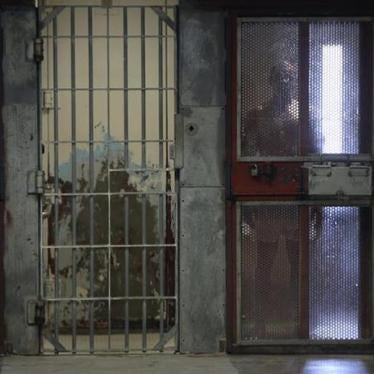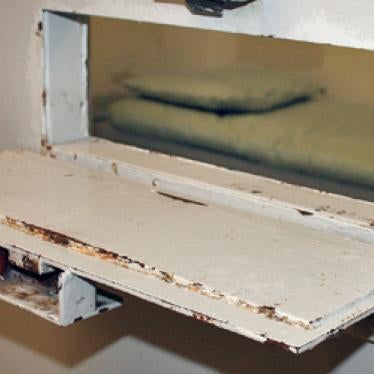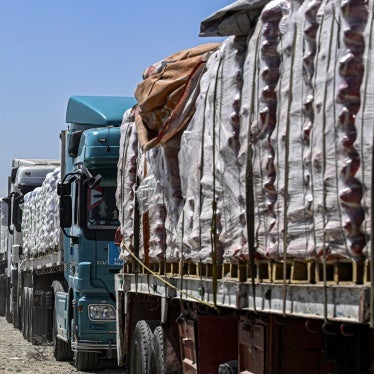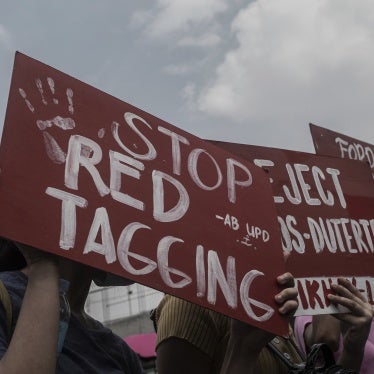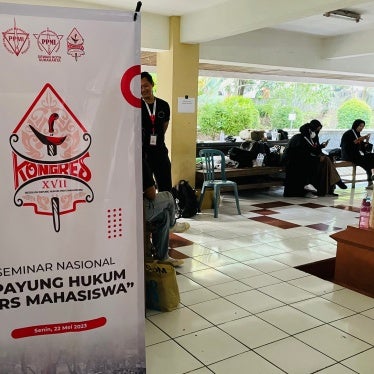Senator Aisha Wahab
Chair of Senate Public Safety Committee
1021 O Street, Suite 7330 Sacramento, CA 95814
RE: Support for AB 280 (Holden)
Dear Chair,
On behalf of Human Rights Watch I write in support of AB 280 (Holden), the California Mandela Act on Solitary Confinement. AB 280 is an important step in ending the use of solitary confinement in California. There is an established consensus among experts, advocates, and those who have first-hand experience on the issue: solitary confinement is often a form of torture and can have permanent deleterious effects on the health of an individual. Many states have passed laws to limit the use of solitary confinement, and it is important that California joins them, as well as the international community, in regulating this practice.
AB 280 provides a clear definition of what constitutes solitary confinement across California prisons, jails, and detention centers, while also setting limits on how it can be used. Further, this bill ends the use of solitary confinement for special populations, including those with disabilities, pregnant women, youth, elderly, and other special populations.
Solitary confinement is one of the most severe and destructive practices found in carceral settings today. The World Health Organization, United Nations, and other international bodies have recognized solitary confinement as greatly harmful and potentially fatal. In 2015, the United Nations General Assembly ratified the Nelson Mandela Rules, defining any period of segregation beyond 15 days as torture and calling for its prohibition.[1]
Despite international demands to end the use of solitary confinement, the practice remains common in jails, prisons, and detention facilities in California. The misuse of solitary in California prisons led to a legal action filed in 2012, when California prisons held nearly 10,000 incarcerated individuals in solitary confinement, including 1,557 who had been there for 10 years or more.[2]
The destructive impact of solitary confinement can have disastrous effects on those who experience it, particularly those who belong to certain populations, including the elderly, disabled, and even pregnant women. For example, in 2018 a pregnant woman in the Santa Rita County Jail in Dublin gave birth alone in a solitary confinement cell.[3] Solitary confinement is often used as an alternative to treatment and accommodation for individuals with special needs or disabilities, at times exacerbating their conditions.
In addition to being a human rights issue, this is also a racial justice issue. Solitary confinement has a disproportionate impact on communities of color, and has long been used as an instrument of harm against racial minorities in jails and prisons. A 2015 report found that in California state prisons, Hispanic men make up 42 percent of the male population, but 86 percent of the male population in restricted housing.[4]
This problem is not limited to jails and prisons alone, but also affects immigrants in private, for-profit detention facilities. In California, more than 90 percent of immigrants are held in for-profit detention facilities, run by corporations who routinely harm those that they are tasked with detaining. An investigation by the federal government into the Imperial Regional Detention Facility found that individuals were routinely placed in solitary confinement for 22 to 23 hours a day, with some being held in these conditions for more than 300 days.[5] In May of 2020, a 74 year old Korean man took his own life after being placed in solitary confinement during the COVID-19 pandemic, in violation of the facility's own protocols related to mental health and welfare[6]. In 2021, an individual sued the private for-profit operator of an immigration detention facility after being held in solitary confinement for 15 months, despite repeated requests to be rehoused.[7]
California must join the international community, and states like New York, New Jersey, Washington, and Colorado in setting clear standards and limits on the use of solitary confinement. This begins by recognizing that prolonged solitary confinement is torture, and setting uniform and consistent limits on how solitary is used in all detention facilities. Through this legislation, California can protect vulnerable populations from this practice, and provide a clear roadmap to ending its use.
For the above reasons, we respectfully urge your “AYE” vote on AB 280 (Holden) when it comes before you. Please do not hesitate to contact me with any questions or concerns.
Sincerely,
Olivia Ensign
Senior Advocate & Researcher, US Program
Human Rights Watch
John Raphling
Associate Director, US Program
Human Rights Watch
Cc: Franklin Porter, Office of Assemblymember Chris Holden
[1] The United Nations Standard Minimum Rules for the Treatment of Prisoners (the Nelson Mandela Rules) published in 2015 https://www.unodc.org/documents/justice-and-prison-reform/Nelson_Mandela_Rules-E-ebook.pdf
[2] Landmark Agreement Ends Indeterminate Long-Term Solitary Confinement in California https://ccrjustice.org/home/press-center/press-releases/landmark-agreement-ends-indeterminate-long-term-solitary
[3] https://www.eastbaytimes.com/2018/08/21/woman-who-gave-birth-alone-in-alameda-county-jail-screaming-for-hours-sues-county/
[5] See report by the Office of the Inspector General - ICE Needs to Address Prolonged Administrative Segregation and Other Violations at the Imperial Regional Detention Facility, Published December 2020, https://www.oig.dhs.gov/sites/default/files/assets/2020-12/OIG-21-12-Dec20.pdf
[7] ICE held a man in solitary confinement for more than a year. He’s suing under a new California law, Los Angeles Times, Oct 14 2021, https://www.latimes.com/california/story/2021-10-14/ice-lawsuit-california-solitary-confinement-detention-citizen
